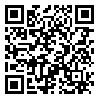
International Journal of Industrial Engineering & Production Research
Iran University of Science & Technology
BibTeX | RIS | EndNote | Medlars | ProCite | Reference Manager | RefWorks
Send citation to:
URL: http://ijiepr.iust.ac.ir/article-1-689-en.html
2- Department of Industrial and Systems Engineering, Isfahan University of Technology, Isfahan, Iran
In single machine scheduling problems with availability constraints, machines are not available for one or more periods of time. In this paper, we consider a single machine scheduling problem with flexible and periodic availability constraints. In this problem, the maximum continuous working time for each machine increases in a stepwise manner with two different values allowed. Also, the duration of unavailability for each period depends on the maximum continuous working time of the machine in that same period, again with two different values allowed. The objective is to minimize the number of tardy jobs. In the first stage, the complexity of the problem is investigated and a binary integer programming model, a heuristic algorithm and a branch-and-bound algorithm are proposed in a second stage. Computational results of solving 1680 sample problems indicate that the branch-and-bound algorithm is capable of not only solving problems of up to 20 jobs but also of optimally solving 94.76% of the total number of problems. Based on numerical results obtained, a mean average error of 2% is obtained for the heuristic algorithm.
Received: 2016/08/26 | Accepted: 2018/01/2 | Published: 2018/02/21
| Rights and permissions | |
 | This work is licensed under a Creative Commons Attribution-NonCommercial 4.0 International License. |




